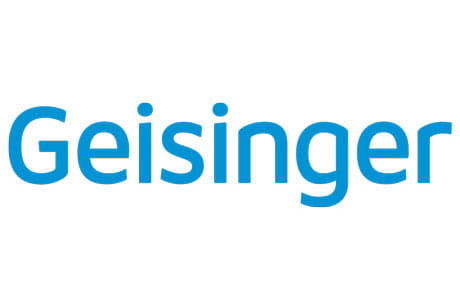Gene variant that protects against chronic liver disease
Findings published in the New England Journal of Medicine today could lead to improved medical intervention against liver disease
“We have discovered a genetic change that alters the function of a liver protein, leading to protection from some liver diseases,” explains Tooraj Mirshahi, Geisinger associate professor in the Department of Functional and Molecular Genomics, and one of the study’s co-authors. “This is exciting news because it means that future therapies that mimic the effect of this genetic change could have the same protective effect against liver disease,” says Mirshahi.
Aris Baras, M.D., vice president at Regeneron and head of the Regeneron Genetics Center, said the study “has pinpointed a new target for the discovery of novel medicines that mimic the action of this variant and similarly reduce the risk of chronic liver diseases, leading causes of death in this country.”
Chronic liver disease and cirrhosis are leading causes of mortality in the United States, accounting for over 38,000 deaths in 2014.
The variant, or mutation, in question causes the loss of function in the HSD17B13 gene. People with two copies of this variant – one from each parent – have a 73 percent lower risk of alcoholic cirrhosis of the liver and 49 percent lower risk of non-alcoholic cirrhosis than do individuals with two functioning copies of the gene. The individuals also had lower risk of other types of liver diseases, including some that progress to advanced or severe stages.
The study used DNA (exome sequencing) data from 46,544 Geisinger MyCode Community Health Initiative participants and their associated electronic medical records. Additional data was gathered from the University of Texas Southwestern’s Dallas Heart Study and the Penn Medicine Biobank. Finally, liver tissue samples collected during bariatric surgeries from Geisinger’s Obesity Institute helped to confirm the link.
Geisinger’s MyCode is a precision health program enrolling patient-participants across Pennsylvania and New Jersey. Participants donate their DNA through a blood sample for research and consent to researchers accessing their sequenced DNA data and electronic health records, providing a powerful and rich data set for genomic and precision health research.
The research program is the largest healthcare system-based project in the world that is returning medically relevant results to participants and conducting extensive research. To date, more than 190,000 participants have enrolled and more than 500 have received medically relevant results.
“The discovery of this gene variant and publication of this important study in the New England Journal of Medicine is another example of the benefits of our historic collaboration with Regeneron and of Geisinger’s long-standing investment in electronic health records and its research program,” said David H. Ledbetter, Geisinger executive vice president and chief scientific officer.
Based on these findings, Regeneron today also announced a collaboration with Alnylam Pharmaceuticals to discover RNAi therapeutics for this gene target.
About Geisinger
Geisinger is among the nation’s leading providers of value-based care, serving 1.2 million people in urban and rural communities across Pennsylvania. Founded in 1915 by philanthropist Abigail Geisinger, the non-profit system generates $10 billion in annual revenues across 134 care sites - including 10 hospital campuses, and Geisinger Health Plan, with 600,000 members in commercial and government plans. The Geisinger College of Health Sciences educates more than 5,000 medical professionals annually and conducts more than 1,400 clinical research studies. With 26,000 employees, including 1,600 employed physicians, Geisinger is among Pennsylvania’s largest employers with an estimated economic impact of $14 billion to the state’s economy. On March 31, 2024, Geisinger became the first member of Risant Health, a new nonprofit charitable organization created to expand and accelerate value-based care across the country. Learn more at geisinger.org or connect with us on Facebook, Instagram, LinkedIn and X.

For media inquires:
mediateam@geisinger.edu
Regeneron Pharmaceuticals:
Alexandra Bowie
914-847-3407
alexandra.bowie@regeneron.com
